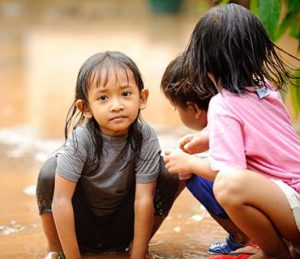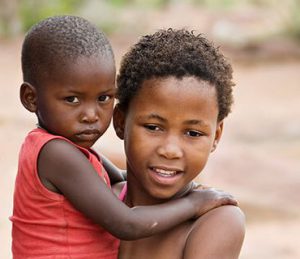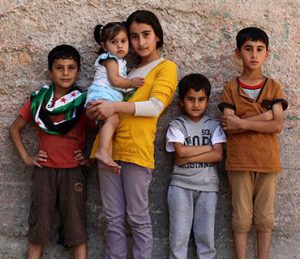CHILD THERAPY
Even when children don’t see domestic abuse, they usually know its happening. It can affect them deeply. More than 50% of women experiencing domestic abuse live in households with children under 12. These children are more likely to exhibit behavioral issues and physical health problems, including depression, anxiety, and violence toward peers.
Women In Distress has child therapists that provide family therapy for infants and clinical one-on-one therapy services for children based on their development from infants to age 17, utilizing evidence-based methods and trauma-focused cognitive behavioral therapy.
A primary focus area for the Women In DIstress Child Therapy program is providing innovative and progressive therapy that focuses on the relation of high-level stress situations to stress levels in infants ages 2-4. Through observation of the parent/child interactions, play therapy techniques, one-on-one interaction with the child and the parent reporting on the level of stress observed in the infant, the Child Therapist will aim to reduce levels of stress the infant is projecting.
Women In Distress Child Therapy program is innovative in the area of domestic violence as no other center in the state has a program focused on specialized clinical services for children starting at age two.
AVAILABLE SERVICES THROUGH THE WID CHILD THERAPY PROGRAM:
FAMILY THERAPY:
Infant children through the age of 3 are provided clinical services in a family therapy setting. Parents who observe ab-normal behavior such as detachment with the primary caregiver, limited/abnormal achievement of physical milestones, severe tantrums and prolonged illness will report the severity of these continuous symptoms throughout the ongoing sessions with the Child Therapist. Also, parents will track their own symptoms, such as prolonged stress, to see what parallels there are with the child’s symptoms.
ONE ON ONE THERAPY:
Based on the child’s developmental stage, the Child Therapist provides one-on-one counseling sessions starting at age 4. Beginning at this age, children are able to self-report on symptoms that they are experiencing and can assist with identifying what experiences have led to these symptoms. Also, parents are asked to monitor their stress levels and symptoms to see what parallels there are with the child’s symptoms.
THERAPEUTIC SUPPORT GROUPS:
- Parenting Skills Support Group: Provide parents with education and positive parenting techniques focused on enhancing current children’s therapeutic services. Skill Building and Curriculum-Based.
- Art Therapy Support Group: Provide space for children to express experience and emotions through art therapy in a group setting. Open for children currently seeing therapists and on the waitlist.
Also, through various progressive methods, such as relaxation and stress management skills, expressive art, play therapy, effective expression of emotions and cognitive coping methods the therapist assists children ages 4-17 reduce anger, anxiety, stress, aggression, fear, self-injury behavior and other symptoms that have been caused by domestic violence.
CHILD ADVOCACY
Individual counseling and advocacy sessions are made available to children ages 4-17 in the Emergency Shelter and Outreach programs. By utilizing a variety of play and art enrichment activities, Child Advocates provide children individual counseling to assist them with their past experiences, learn to positively express their feelings, understand the dynamics of healthy relationships and ultimately recognize and implement non-violent behaviors in their day-to-day lives.
Children also have the option of participating in support groups that allow them to express themselves in a safe, non-judgmental environment while receiving support from peers who have had similar experiences.
Parents also have access to a parenting group, which covers topics such as the effects of domestic violence on children, children’s safety during violent incidents, positive communication, trauma reduction and learned behavior. Parents also learn a number of different parenting skills and techniques that help them maintain a positive parent/child relationship.
While parents are receiving services, WID provides free respite care for children. In addition to providing safe supervision of the children, respite care encourages healthy interaction with peers, promotes non-violent conflict resolution, and provides an overall sense of well-being, all of which can be instrumental to the emotional wellness of child survivors.

















